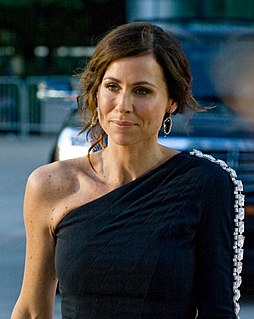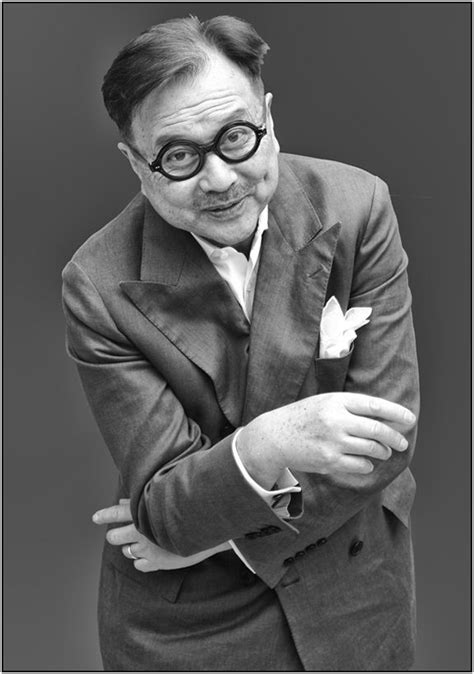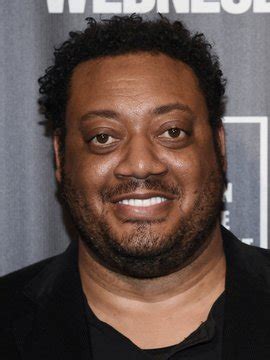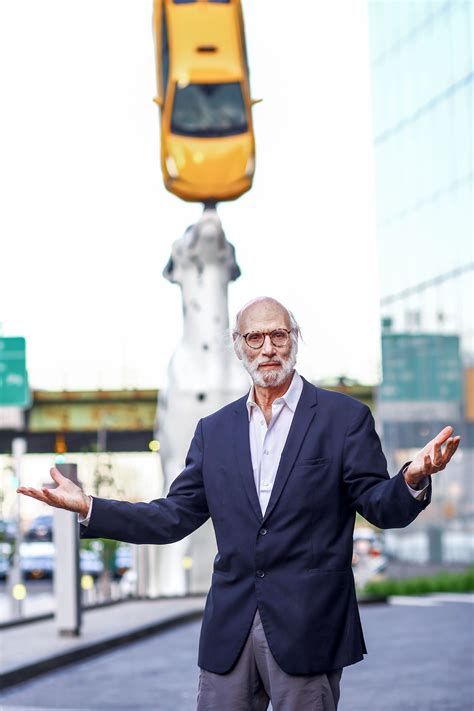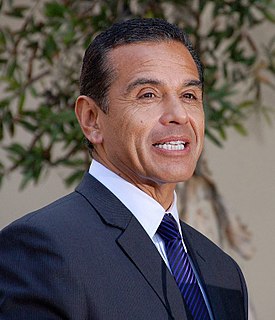A Quote by Minnie Driver
In some movies you feel like you're a very small part of a huge machine. Whereas in the theater you can have a very small part, but you can still feel the weight and the gravity of it. Given the nature of theater, it's a more concentrated and quiet experience
Related Quotes
The true essence of Chinese culture is sophistication, refinement, the spirit of poetry. The spirit of ink painting and calligraphy lives on forever. Calligraphy is more important than painting. Chinese always consider nature. Man is a very small part of nature. That's why in Chinese painting you see huge mountains and man very small, very humble before nature. You must be harmonious and one with nature. You don't fight it. And then there's a bit of a poetry. Of course, it's very complicated, but also very simple.
In making a movie, you're part of a big machine. Even in a small movie there are still so many people involved in the process, and it costs so much money to make. There is so much more invested in it for a lot of different people, so much money is sunk into it that they usually want some guarantee or promise that it's going to be able to do something on a financial level. There's just a lot more messing with you in film. I love movies and I love to watch movies and being a part of the whole film experience.
I think, as an actor, it is good to feel the fear of failing miserably. I think you should take that risk. Fear is a necessary ingredient in everything I do. But if I do 'Hamlet,' it will probably be in a small theater on a small stage, and it will have to be very, very soon because I'm getting a little long in the tooth for it.
There will be increasing temptation to watch movies where you want to when you want to, and so I'm very focused on how we innovate Illumination Entertainment to keep the in-theater experience vibrant and urgent. In part I think it's what movies you're choosing to make and why those are films we feel are best enjoyed surrounded by a group of people. I also think it's continuing to look at things technologically.
I didn't take theater or anything. We didn't have a very good theater program. It was in western Utah - was a really small school. It wasn't developed. We didn't have the funds to do anything like that, but I did act all through high school in films because Disney Channel would shoot movies out there.
I feel like in American fiction we're moving out of a period of intense irony, and I'm very glad about that. I feel like irony is fine for its own sake but shouldn't be the sole reason to write a book. It has been an ironic world view: that's the best way I can describe it. I'm a fan of earnestness. I feel like there's a new wave of earnestness and I'd be happy if I'm some small part of that.
I was always interested in acting, but in my high school sports was the cool thing to be part of, and I was still very into being cool. So I played a lot of basketball and football. But I always had that want to be in theater and to be a part of theater arts. But in my school, it was just a really nerdy thing to be a part of. Everyone in my school wore bowler hats - they were always on, always acting, and all so big. I was like, "I can't be that", even though I wanted to be.
The theater itself is so archaic and old fashioned, that it doesn't really matter to me whether it's on Avenue D or at the Helen Hayes Theater. What's the difference? It's still a very nostalgic form. Also, it means you're knowingly walking into a room where there's actors. I feel it's very embarrassing. Because, you know, they're right there. You always think like, they can see you, and I think it's mortifying, frankly, and I hate to sit near the front, where you feel they actually might see you. It's too ... it's too live.
With fame, all of a sudden you're seeing yourself through the eyes of a world of men, and that's . . . Look, it's very weird to have part and parcel of a job to feel like you're a lure for men to come into the theater. Some people do have a very innate sexuality to them. I may or may not have it, but it makes people see you in a certain light that has nothing to do with me.
